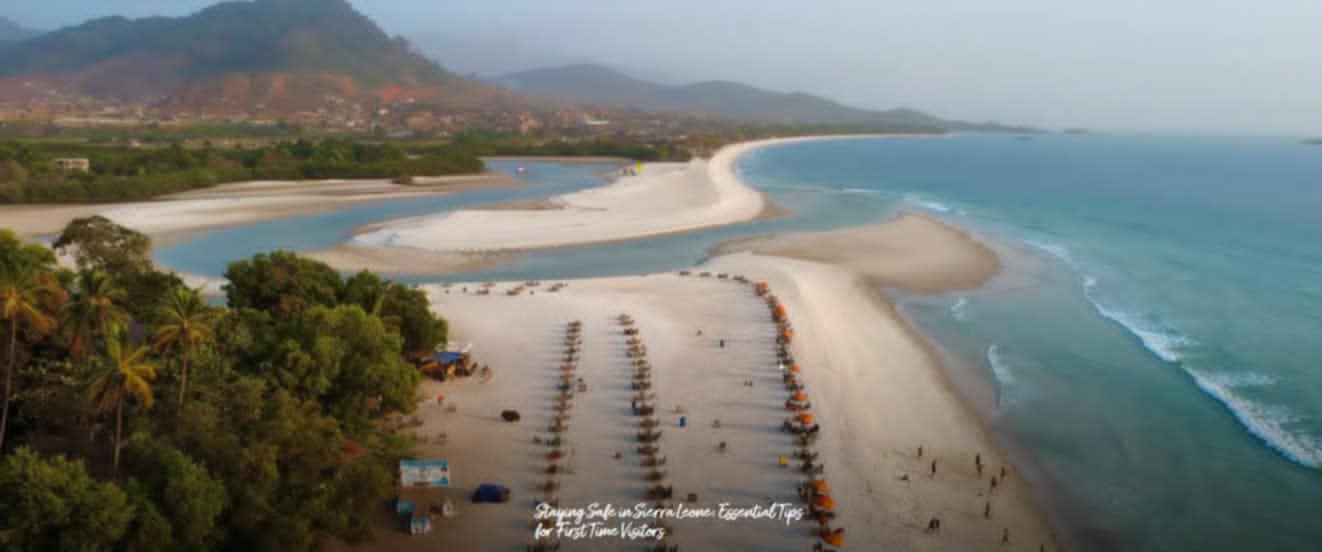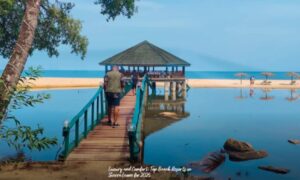Planning your first visit to Sierra Leone? You’re in for a treat. From golden beaches and lively city markets to lush forests and rich cultural experiences, this West African gem has something for every kind of traveler. But, like any new destination, it helps to come prepared—especially when it comes to safety. The good news? Sierra Leone is one of the most welcoming and travel-friendly countries in the region. With a little preparation and some street smarts, you’ll be able to enjoy your trip with peace of mind.
Here’s a fresh and practical guide to help you travel smart and stay safe on your first journey to Sierra Leone.
Sierra Leone Today: Safe, Stable, and Friendly
Forget the old headlines. While Sierra Leone went through tough times in the past—like the civil war and Ebola outbreak—those days are long gone. The country has since made tremendous strides in rebuilding and stability. Today, it’s known for its peaceful environment and warm-hearted people. As a visitor, you’ll find locals friendly and eager to help. Violent crime is rare, and tourists are generally welcomed with curiosity and kindness. Still, as with travel anywhere, it’s wise to be alert and informed.
Health First: Vaccinations and Essentials
Before you even step on the plane, make sure your health documentation is in order. The Yellow Fever vaccination is mandatory for entry, and you’ll need to show proof at immigration. It’s also a good idea to be up to date on routine shots like tetanus, hepatitis A, and typhoid. Mosquito-borne illnesses like malaria are present, so pack repellent and consider anti-malarial medication after consulting your doctor.
While in Sierra Leone, only drink bottled or purified water. It’s widely available and inexpensive. Avoid raw or undercooked food, and eat where there’s high customer turnover to ensure freshness.
Money Matters: Be Smart With Cash
Sierra Leone is primarily a cash-based society. ATMs are limited, especially outside major cities, and many places do not accept cards. Exchange currency at reliable spots like the airport or banks, and carry small bills for everyday purchases. Keep your money divided—some in your wallet, some in a money belt, and a bit stored securely in your bag or hotel safe.
Stay Connected With a Local SIM
Once you arrive, pick up a local SIM card from Orange or Africell. They’re inexpensive and offer reliable coverage in cities and towns. Having mobile data not only helps you navigate and book rides but also keeps you in touch with local contacts and emergency services, if needed. It’s a simple step that adds a layer of convenience and safety to your trip.
Navigating the Roads: Let the Locals Drive
Driving in Sierra Leone—especially in the capital, Freetown—can be overwhelming. The streets are packed with cars, minibuses (poda podas), motorbikes, and rickshaws (kekes), all jostling for space in chaotic but surprisingly efficient patterns. If you’re not used to this style of traffic, it’s best to hire a local driver or use ride services. Avoid night travel outside city limits, where lighting is limited and roads can be unpredictable.
Markets and Crowds: Keep Valuables Close
Sierra Leone’s markets are lively and colorful, full of music, scents, and amazing goods. But as with any crowded place, it’s wise to be cautious. Use a crossbody bag, avoid flashing expensive electronics or jewelry, and keep your phone in a secure pocket when not in use. Petty theft is uncommon but not unheard of, so stay aware and blend in when possible.
Enjoy the Beaches—With Care
The country’s coastline is nothing short of spectacular. Popular beaches like Lumley, Tokeh, and River No. 2 offer everything from relaxed lounging to local food and music. However, keep in mind that lifeguards are rare, and currents can be strong. Swim only in daylight, stick to known beach areas, and always keep an eye on personal belongings while you relax in the sun.
A Friendly Culture: Respect and Language
Sierra Leone is culturally diverse, and hospitality is a cornerstone of social life. Most people speak English, but learning a few words of Krio (the widely spoken local Creole) will go a long way. A cheerful “How di bodi?” (How are you?) can open doors and spark smiles. Always ask before taking photos of people—especially in rural areas or traditional settings—and don’t be surprised if some locals ask for a small tip in return.
The Rental Rule: When In Doubt, Ask
From car rentals to boats or equipment at the beach, always clarify terms before committing. It’s normal to negotiate, but once agreed upon, try to stick to the deal. Sierra Leoneans are generally honest and helpful, but clear communication avoids misunderstandings.
Emergency Contacts to Save
For added peace of mind, save the local emergency numbers on your phone:
- Police: 112
- Ambulance: 117
- Fire Service: 300
Also, inform your hotel or host of your plans if heading out on day trips or excursions.
Responsible Travel: Give Back, Sustainably
When you visit Sierra Leone, you’re not just a tourist—you’re a guest in a community. Use local guides, support small businesses, and treat people and property with care. By returning borrowed items (like rented bikes or beach gear) on time and in good condition, you help create a culture of mutual respect and support sustainable tourism growth.
Final Word: Adventure Awaits
With its friendly locals, stunning landscapes, and vibrant energy, Sierra Leone offers an experience that’s both unique and unforgettable. Staying safe here isn’t complicated—it’s all about awareness, respect, and preparation. If you follow these simple guidelines, your journey will be smooth, inspiring, and filled with meaningful moments.
So go ahead—soak up the sun, wander the rainforests, explore the buzzing cities, and embrace the culture. Just remember to travel smart, and you’ll discover a side of Sierra Leone that few get to see.
Welcome to your next great adventure.



































